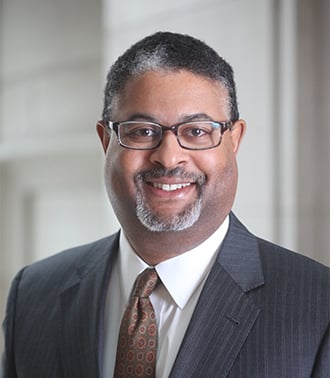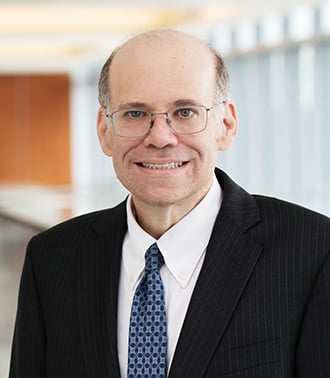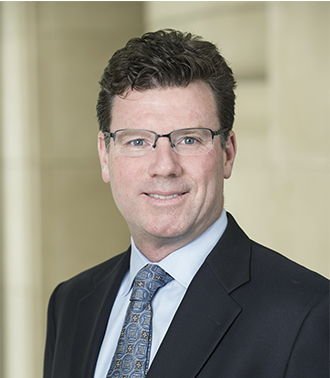UHS v. U.S. ex rel. Escobar : Supreme Court Refines "Implied Certification" Theory of False Claims Act Liability
On June 16, 2016, the US Supreme Court issued a unanimous decision in the Medicaid case of Universal Health Services, Inc. v. United States ex rel. Escobar,1 adopting a form of the "implied certification" theory of knowingly fraudulent representations under the civil False Claims Act (FCA).2 The Court's opinion, authored by Justice Clarence Thomas, confirmed that the implied certification theory "can be a basis for liability,"3 resolving a circuit split about the theory's viability. The Court also refined the theory and identified two preconditions for its application. First, when a contractor submits a claim for government payment, the claim must not "merely request payment"; it must also "make[] specific representations about the goods or services provided."4 Second, the contractor's "failure to disclose noncompliance with material statutory, regulatory, or contractual requirements" must transform those representations into "misleading half-truths."5 The Court further clarified that the legal noncompliance must be "material to the Government's payment decision,"6 and that this may often be a context-dependent analysis.
Escobar rejected the Seventh Circuit's position that implied certification is not a valid theory of liability,7 and also rejected the position of the Second Circuit and other Courts of Appeals that an implied certification must concern compliance with an express condition of payment.8 Yet by emphasizing the common-law fraud element of "materiality," Escobar also refused to let "every undisclosed violation of an express condition of payment automatically trigger[] liability,"9 because "materiality" does not simply depend on whether the government "would be entitled to refuse payment were it aware of the violation."10 Ultimately, Escobar's new standard for implied false certifications requires a close connection between the legal requirements that a contractor supposedly violates, on the one hand, and what the contractor actually represents in its claims for government payment, on the other.
Background
As alleged by the relators: in 2009, a Medicaid patient undergoing treatment at a Massachusetts mental health clinic died of a seizure. In 2011, her parents (the Respondents) filed a qui tam lawsuit under the FCA in federal district court, alleging that the staff members treating their daughter were not properly licensed or supervised, in violation of Massachusetts health regulations. They contended that, by submitting Medicaid invoices for services performed in violation of those regulations, the clinic and its parent corporation Universal Health Services, Inc. (the Petitioners) submitted false and fraudulent claims to the Medicaid program. Because the claims for government payment did not expressly certify that the services were performed in compliance with state regulations, the complaint rested on the theory that the clinic implied its regulatory compliance when it submitted the claims (i.e., "implied certification").
In 2014, after the government declined to intervene in the suit, the district court granted the defendants' motion to dismiss. The court concluded that the complaint did not state any implied falsity because it relied on noncompliance with regulations that were conditions of participation in Massachusetts' Medicaid program, rather than conditions of payment by the program.11
The US Court of Appeals for the First Circuit reversed, holding that conditions of payment, "which may be found in sources such as statutes, regulations, and contracts, need not be 'expressly designated.'"12 Instead, the First Circuit explained, whether a legal requirement is a condition of payment is "a fact-intensive and context-specific inquiry, involving a close reading of the foundational documents, or statutes and regulations, at issue."13 The court concluded that the supervision regulations at issue did, indeed, impose conditions of payment, and therefore were "dispositive evidence of materiality."14
The Supreme Court granted certiorari to answer whether the implied certification theory was a viable one, and if so, whether it could only apply where a contractor violated a legal requirement that the government had expressly designated as a condition of payment.
Analysis
The Supreme Court first held that "the implied false certification theory can, at least in some circumstances, provide a basis for liability."15 It reasoned that the FCA's term "fraudulent" is "a paradigmatic example of a statutory term that incorporates the common-law meaning of fraud."16 "Because common-law fraud has long encompassed certain misrepresentations by omission," the Court found it undisputed that "misrepresentations by omission can give rise to liability."17
Importantly, the Court explained that the misrepresentation must relate to the submitted claim's "specific representations about the goods or services provided[.]"18 Here, the Court emphasized that the Medicaid claims at issue had allegedly made representations "about the specific services provided by specific types of professionals," but "failed to disclose serious violations of regulations pertaining to staff qualifications and licensing requirements for these services."19 Therefore, the claims were "clearly misleading in context," because they used specific billing codes and identifiers concerning the "types of treatment" and "specific job titles," implying that the clinic's personnel had the requisite training and qualifications for their jobs.20 Such misrepresentations fell "squarely within the rule that half-truths—representations that state the truth only so far as it goes, while omitting critical qualifying information—can be actionable misrepresentations."21
Next, the Court held that a misrepresentation about legal compliance does not become "material" simply because the government expressly labeled the legal requirement as a "condition of payment," or because the government could choose to withhold payment if it knew about the noncompliance.22 "What matters is not the label the Government attaches to a requirement, but whether the defendant knowingly violated a requirement that the defendant knows is material to the Government's payment decision."23 The Court explained that "[a] statement that misleadingly omits critical facts is a misrepresentation irrespective of whether the other party has expressly signaled the importance of the qualifying information."24 Thus, the fact that a legal requirement is labeled as a condition of payment is relevant to materiality, but "not automatically dispositive."25
Finally, the Court elaborated on what kind of nondisclosure gives rise to a "material" falsehood. The materiality inquiry focuses on the misrepresentation's "effect on the likely or actual behavior of the recipient of the alleged misrepresentation."26 Although "minor or insubstantial" noncompliance "cannot" be material,27 other relevant considerations include whether the government "consistently refuses to pay claims in the mine run of cases based on noncompliance with the particular statutory, regulatory, or contractual requirement," or, conversely, whether the government "pays a particular claim in full despite its actual knowledge that certain requirements were violated."28
Because neither the Court of Appeals nor the district court used this analysis when assessing the defendants' motion to dismiss, the Supreme Court vacated the First Circuit's judgment and remanded the case for reconsideration.29
Implications
Although many lower courts had already embraced some form of the implied certification theory, Escobar creates new areas for litigation by clarifying what makes a falsehood "implied," and by imposing a new context-dependent standard for what makes undisclosed legal violations into "material" misrepresentations. Escobar's real meaning and reach will start to become clear only as district courts begin to consider motions to dismiss FCA complaints for failure to properly plead a claim of contracting fraud. In fact, Escobar's emphasis on the "demanding"30 common-law fraud element of "materiality" could also reshape the theory of express false certifications, where FCA liability is triggered by affirmative misrepresentations on a claim for payment. The Supreme Court rejected the possibility that "if the Government required contractors to aver their compliance with the entire U. S. Code and Code of Federal Regulations, . . . failing to mention noncompliance with any of those requirements would always be material."31 The Court stated that the FCA "does not adopt such an extraordinarily expansive view of liability."32
The Court acknowledged that potential FCA defendants are typically participants in heavily regulated industries, such as healthcare providers, pharmaceutical companies, and government procurement contractors, and that the FCA "is not 'an all-purpose antifraud statute,' or a vehicle for punishing garden-variety breaches of contract or regulatory violations."33 It also agreed that "billing parties are often subject to thousands of complex statutory and regulatory provisions," and that treating regulatory violations as standalone proof of liability "would hardly help would-be defendants anticipate and prioritize compliance obligations."34 The Court further refused to define a material legal requirement exclusively as one labeled a "condition of payment," because that might lead the government to "designat[e] every legal requirement an express condition of payment."35 Ultimately, the Court concluded that "concerns about fair notice and open-ended liability 'can be effectively addressed through strict enforcement of the Act's materiality and scienter requirements.'"36
Despite these assurances, the Court's ruling does not provide a bright-line rule on implied certification. Instead, lower courts will have to develop a context-dependent materiality standard that looks to the effect on the government's "likely or actual" reimbursement decision, had the government been aware of the alleged misrepresentation.37 This standard could lead to inconsistent lower court rulings that may contribute to forum-shopping by FCA qui tam relators, in much the same way that the prior circuit splits on the implied certification standard did.
The Court also rejected the concern that an overly fact-intensive inquiry would hinder defendants' ability to defeat frivolous cases on motions to dismiss or for summary judgment. The Court opined that these concerns could be adequately addressed by the FCA's "familiar and rigorous" materiality standard.38 Similarly, the Court emphasized the importance of heightened pleading standards of plausibility and particularity under the Federal Rules of Civil Procedure, which would require plaintiffs to "plead[] facts to support allegations of materiality."39
Importantly, the Court's articulation of the implied certification framework tightens the required link between the claim for payment and the allegedly undisclosed legal violation in question. First, an FCA plaintiff must show that the defendant "ma[de] specific representations about the goods or services provided."40 In Escobar, the clinic allegedly made such "specific representations" by submitting claims with payment codes corresponding to specific counseling services and by using National Provider Identification numbers corresponding to specific job titles.41 This requirement suggests that the implied certification theory will fail where a defendant submitted a bare request for reimbursement, without such specific representations.
Second, and perhaps most significantly, a defendant's alleged "failure to disclose noncompliance with material statutory, regulatory, or contractual requirements" must render "those representations misleading half-truths."42 In other words, the underlying violation must be directly relevant to a specific representation made by the defendant. This requirement, consistently applied, could go a long way to preventing unlimited punitive liability for technical violations that cannot be linked to any affirmative representation by the defendant. For example, the Supreme Court rejected the government's hypothetical example from oral argument, involving healthcare contracts that include a requirement that healthcare providers buy American-made staplers. The government had argued, unsuccessfully, that "anyone who submits a claim for those services but fails to disclose its use of foreign staplers violates the False Claims Act," "irrespective of whether the Government routinely pays claims despite knowing that foreign staplers were used."43
Escobar certainly has not eliminated implied certification as a basis for FCA liability, as some may have hoped, and may have made it more challenging to dispose of FCA complaints on the pleadings. But its focus on "specific representations," along with its "rigorous" and "demanding" approach to materiality, may provide FCA defendants new arguments to defeat unmeritorious implied certification claims.
-
No. 15-7, 2016 WL 3317565 (June 16, 2016).
-
-
Universal Health Servs., Inc. v. U.S. ex rel. Escobar, No. 15-7, slip op. at 11.
-
Universal Health Servs., Inc. v. U.S. ex rel. Escobar, No. 15-7, slip op. at 11.
-
Universal Health Servs., Inc. v. U.S. ex rel. Escobar, No. 15-7, slip op. at 11.
-
Universal Health Servs., Inc. v. U.S. ex rel. Escobar, No. 15-7, slip op. at 14.
-
See United States v. Sanford-Brown, Ltd., 788 F.3d 696, 711-712 (7th Cir. 2015).
-
E.g., Mikes v. Straus, 274 F.3d 687 (2d. Cir. 2001).
-
Universal Health Servs., Inc. v. U.S. ex rel. Escobar, No. 15-7, slip op. at 12.
-
Universal Health Servs., Inc. v. U.S. ex rel. Escobar, No. 15-7, slip op. at 17.
-
U.S. ex rel. Escobar v. Universal Health Servs., Inc., No. 11-CV-11170-DPW, 2014 WL 1271757, at *7 (D. Mass. Mar. 26, 2014).
-
U.S. ex rel. Escobar v Universal Health Servs., Inc., 780 F.3d 504, 512 (1st Cir. 2015).
-
U.S. ex rel. Escobar v Universal Health Servs., Inc., 780 F.3d 504, 512-13 (1st Cir. 2015) (quotation marks and citations omitted).
-
U.S. ex rel. Escobar v Universal Health Servs., Inc., 780 F.3d 504, 514 (1st Cir. 2015) (quotation marks omitted).
-
Universal Health Servs., Inc. v. U.S. ex rel. Escobar, No. 15-7, slip op. at 8.
-
Universal Health Servs., Inc. v. U.S. ex rel. Escobar, No. 15-7, slip op. at 8.
-
Universal Health Servs., Inc. v. U.S. ex rel. Escobar, No. 15-7, slip op. at 9.
-
Universal Health Servs., Inc. v. U.S. ex rel. Escobar, No. 15-7, slip op. at 11.
-
Universal Health Servs., Inc. v. U.S. ex rel. Escobar, No. 15-7, slip op. at 5-6.
-
Universal Health Servs., Inc. v. U.S. ex rel. Escobar, No. 15-7, slip op. at 10-11.
-
Universal Health Servs., Inc. v. U.S. ex rel. Escobar, No. 15-7, slip op. at 9-10.
-
Universal Health Servs., Inc. v. U.S. ex rel. Escobar, No. 15-7, slip op. at 15-16.
-
Universal Health Servs., Inc. v. U.S. ex rel. Escobar, No. 15-7, slip op. at 2.
-
Universal Health Servs., Inc. v. U.S. ex rel. Escobar, No. 15-7, slip op. at 12.
-
Universal Health Servs., Inc. v. U.S. ex rel. Escobar, No. 15-7, slip op. at 16.
-
Universal Health Servs., Inc. v. U.S. ex rel. Escobar, No. 15-7, slip op. at 14 (quotation marks omitted).
-
Universal Health Servs., Inc. v. U.S. ex rel. Escobar, No. 15-7, slip op. at 16.
-
Universal Health Servs., Inc. v. U.S. ex rel. Escobar, No. 15-7, slip op. at 16.
-
Universal Health Servs., Inc. v. U.S. ex rel. Escobar, No. 15-7, slip op. at 17-18.
-
Universal Health Servs., Inc. v. U.S. ex rel. Escobar, No. 15-7, slip op. at 15.
-
Universal Health Servs., Inc. v. U.S. ex rel. Escobar, No. 15-7, slip op. at 17.
-
Universal Health Servs., Inc. v. U.S. ex rel. Escobar, No. 15-7, slip op. at 17.
-
Universal Health Servs., Inc. v. U.S. ex rel. Escobar, No. 15-7, slip op. at 15 (quoting Allison Engine Co. v. U.S. ex rel. Sanders, 553 U.S. 662, 672 (2008)).
-
Universal Health Servs., Inc. v. U.S. ex rel. Escobar, No. 15-7, slip op. at 13.
-
Universal Health Servs., Inc. v. U.S. ex rel. Escobar, No. 15-7, slip op. at 13.
-
Universal Health Servs., Inc. v. U.S. ex rel. Escobar, No. 15-7, slip op. at 13-14 (quoting United States v. Sci. Appls. Int'l Corp., 626 F.3d 1257, 1270 (D.C.Cir.2010)).
-
Universal Health Servs., Inc. v. U.S. ex rel. Escobar, No. 15-7, slip op. at 14 (quotation omitted).
-
Universal Health Servs., Inc. v. U.S. ex rel. Escobar, No. 15-7, slip op. at 16 n.6.
-
Universal Health Servs., Inc. v. U.S. ex rel. Escobar, No. 15-7, slip op. at 16 n.6.
-
Universal Health Servs., Inc. v. U.S. ex rel. Escobar, No. 15-7, slip op. at 11.
-
Universal Health Servs., Inc. v. U.S. ex rel. Escobar, No. 15-7, slip op. at 5.
-
Universal Health Servs., Inc. v. U.S. ex rel. Escobar, No. 15-7, slip op. at 11 (emphasis added).
-
Universal Health Servs., Inc. v. U.S. ex rel. Escobar, No. 15-7, slip op. at 17.




